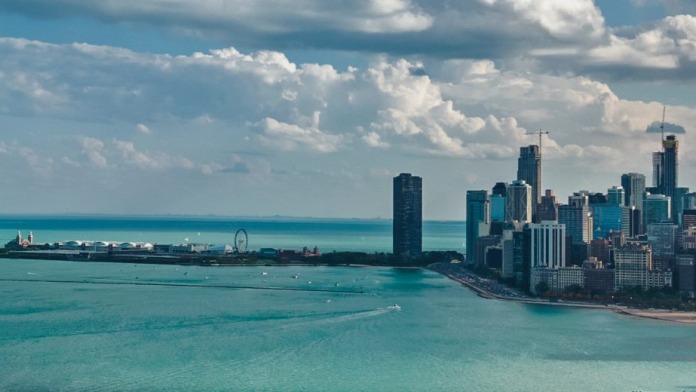Expert Insights
Recent legislation passed in Illinois is designed to increase access to Naloxone and fentanyl testing strips. Officials are reacting to the number of opioid overdoses that continue to climb each year. But these laws—and their related funding—aren’t designed to stop the trainwreck before it starts. Why aren’t we making more efforts up front – putting more funding into programs to educate and warn students of all ages about the dangers of substance abuse? A few hours of D.A.R.E in 5th grade isn’t enough. We need to stop the train before it leaves the station. This is how we change the future of the Prairie State.
Kerry Nenn
How Much Does Drug Rehab in Illinois Cost?
The cost of addiction treatment in Illinois is considered average, with the state ranking as the 24th cheapest for inpatient drug care. On average, you can expect to pay $1,704 for outpatient drug rehab, whereas a residential rehab will cost an average of $56,666.3 However, many different factors affect cost, including location, features, amenities, insurance coverage, financing options, length of stay, and beyond.
How to Pay for Drug Rehab in Illinois
As of 2024, there were over 760 drug rehab facilities across the state of Illinois. These facilities accept several payment methods. Of those treatment facilities, the following numbers reflect how many accept their respective payment methods:
How to Find Free Rehabs in Illinois
A free treatment center, also known as state-funded rehab, is always an option if you don’t have the financial resources to pay for a program. These treatment centers use government funds to help cover the cost of rehab for those who qualify due to a lack of income or a lack of insurance coverage. For acceptance into an Illinois state-funded rehab, you can contact the Illinois Health and Human Services Department for assistance.
Does Insurance Cover Drug Rehab in Illinois?
If you have insurance, using it to pay for rehab in Illinois can help to reduce the cost of treatment. According to the Affordable Care Act and the Mental Health Parity and Addiction Equity Act (MHPAEA) of 2008, health insurers and group health plans are required to cover mental health and substance use treatments just like other medical conditions.
How to Finance Addiction Treatment in Illinois
If you are unable to find a free rehab or you don’t have insurance to pay for private alcohol or drug rehab, there are alternatives available to you. These alternatives include faith-based organizations, non-profit-run alcohol and drug rehab programs, and/or government-funded rehab programs. There are also medical loans or clinic-specific financing that you may qualify for to help pay for the cost of drug or alcohol rehab.
More than likely, you will be required to pay back any loans or financing that you use to pay for your drug and/or alcohol rehab. This usually isn’t the case for government, faith-based, and non-profit-run rehab programs.
Apply for a Rehab Scholarship: A rehab scholarship is a financial award that you can apply for if you don’t have the financial means to pay for rehab yourself. These scholarships usually do not have to be repaid. Alcohol and/or drug rehab scholarships can pay for the full cost of rehab or help to pay for any costs of rehab that aren’t covered by your insurance.
Finding rehab scholarships can be a challenge if you don’t know where to look. You can always try organizations like 10,000 beds or contact the facility of your choice directly to ask about rehab scholarships since many facilities don’t openly advertise their scholarship options.
Find a Sliding Scale Rehab Program: One common method for paying for rehab involves a sliding scale fee. A sliding scale is a method of payment for alcohol and drug rehab programs that usually involve a fee schedule in which your payment amount varies based on your ability to pay.
To qualify for a sliding scale payment, you may have to show proof of income either in the form of tax returns or paystubs to your rehab. A sliding scale payment schedule will then be determined based on your ability to pay. If your income is below a certain level determined by the individual clinic, you will qualify for a lower payment.
Choose a Program that Offers Payment Plans: When it comes to paying for rehab, some drug and alcohol rehab centers in Illinois offer payment plans. Easy and convenient, payment plans are one option to get the rehab you need without having to pay for the cost of rehab upfront.
Payment plans break down the cost of treatment into affordable monthly payments that usually become payable after you complete treatment. To receive a payment plan, you can contact your alcohol and/or drug rehab provider. Some rehab facilities offer payment plans based on whether you are using insurance or if you are paying for your treatment out-of-pocket.
Does Illinois Struggle With Alcohol and Drug Use?
In the 2017-2019 reporting period, 0.22% (approximately 23,000) of individuals aged 12 or older in Illinois reported heroin use.1
Here are some additional eye-opening stats:1

Prescription pain medication abuse was reported by 2.7% (approximately 292,000) residents.

Opioid use was reported by 0.5% (approximately 57,000) of residents aged 12 or older.

Illicit drug use was reported by 3.0% (approximately 315,000) of residents aged 12 or older.

With alcohol use disorders, 6.0% (approximately 640,000) of residents aged 12 or older reported misusing alcohol.
In 2020, Illinois saw a total of 2,944 opioid overdose deaths, which was a 33% increase from 2019.2
Important Alcohol and Drug Laws in Illinois
Illinois policy makers have established the following laws regarding substances:1,2,3,4
Drug Possession: In Illinois, possession of drugs (except cannabis) is a felony in all cases. Felony charges can lead to jail time and a lifelong felony record.
Good Samaritan Law: Good Samaritan Law: The Emergency Medical Services Access Law of 2012 is the Good Samaritan Law in Illinois. This law is designed to encourage people to seek emergency medical assistance when someone is overdosing. If an Illinois resident calls 911 or brings someone to an emergency room for an overdose, both the victim who is overdosing and the person seeking help are protected from being prosecuted for felony possession of small amounts of drugs.
Pretrial Fairness Act: Effective Jan 1, 2023, this law gives police officers who catch people with small amounts of drugs discretion to release them with a citation that orders them to appear in court within three weeks. This is a change from the previous law which put that person immediately in jail for a few days until they were brought before a judge.
DUI Laws: “Driving Under the Influence” is defined as “operating a motor vehicle while impaired by alcohol, other drugs, including cannabis (marijuana) prescribed for medical purposes, or intoxicating compounds and methamphetamine.” In Illinois, drivers are considered under the influence if they have a BAC of .08 or higher, have a THC concentration of either 5 nanograms or more per milliliter of whole blood or 10 nanograms or more per milliliter of other bodily substance, have used any other controlled substance, or are impaired by medication. A first conviction DUI is a Class A misdemeanor with a minimum penalty of revocation of driving privileges for one year and suspension of vehicle registration.
Resources
- Substance Abuse and Mental Health Services Administration. (2020). Behavioral Health Barometer: Illinois, Volume 6: Indicators as measured through the 2019 National Survey on Drug Use and Health and the National Survey of Substance Abuse Treatment Services. HHS Publication No. SMA–20–Baro–19–IL. Rockville, MD: Substance Abuse and Mental Health Services Administration.
- Illinois Department of Public Health. (2020). Opioids: Illinois’ Other Epidemic.
- National Center for Drug Abuse Statistics. (2022). Average Cost of Drug Rehab [2022]: by Type, State & More.
- Medicaid.gov. (2022). Parity/Medicaid.
- Center for Medicare Advocacy. (2022). Medicare Coverage of Mental Health and Substance Abuse Services – Center for Medicare Advocacy.
- Gastorf, Pat. (n.d.). The Opioid Crisis in Illinois: Data and the State’s Response. Retrieved December 12, 2022, from http://www.dhs.state.il.us/OneNetLibrary/27896/documents/The_Opioid_Crisis_in_Illinois.pdf
- M., W., Leslie. (2022). Statewide Semiannual Opioid Report Illinois Department of Public Health. Illinois Department of Public Health. https://www.ilga.gov/reports/ReportsSubmitted/3424RSGAEmail6812RSGAAttachIL%20Semiannual%20Opioid%20Report%205_22%20Public%20Act%20099-0480%20.pdf








